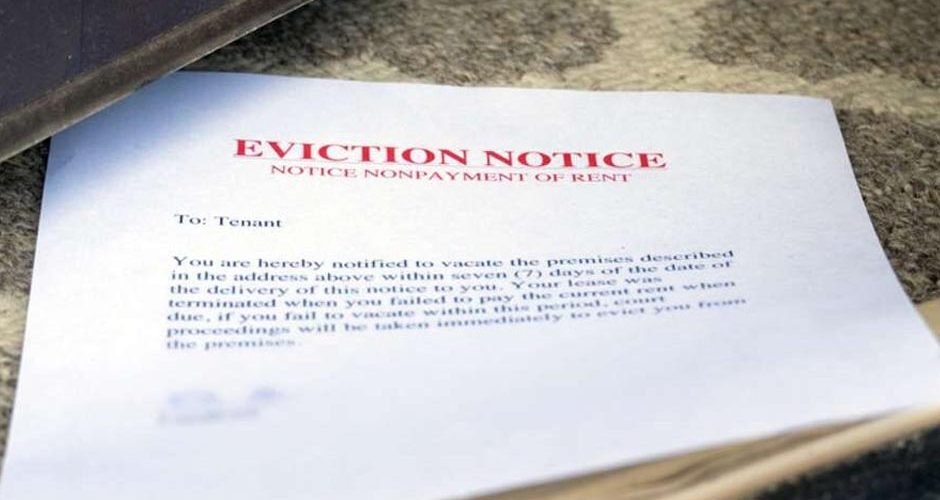Creating and serving a 7-day eviction notice requires understanding the legal basis for eviction and adherence to state-specific protocols. Landlords consider this process when a tenant has breached the terms of their rental agreement, often related to non-payment of rent or violation of lease conditions. It is critical for a landlord to meticulously document all incidents leading to this point and ensure the notice is legally compliant to prevent delays or legal repercussions. Prior to delivering the notice, landlords should review their state’s laws to determine the correct procedures, as the eviction notice serves as the initial step in what could potentially become a legal eviction process.
Once the decision to serve a 7-day eviction notice has been made, crafting the document must be done with precision. The eviction notice should clearly state the reason for eviction, provide the tenant with the legally required amount of time to remedy the issue or vacate the property, and inform them of the consequences of failing to comply. Delivering the notice, known as “serving” the notice, must be carried out in a manner prescribed by law, which may include personal delivery, posting on the property, or mailing it through certified mail. Proper service ensures that the tenant receives the notice and the landlord can document this step, which is essential in case the eviction process advances to court.
Table of Contents
Key Takeaways
- A 7-day eviction notice is a formal document initiated by landlords to address lease violations.
- The notice must be crafted in accordance with state laws and detail the reasons for eviction along with a remediation period.
- Serving the eviction notice correctly is crucial for the eviction process, with methods varying based on state regulations.
Preparing the Eviction Notice
When constructing a 7-day eviction notice in different states, it’s essential to ensure the document is legally compliant and clearly details the reasons for eviction. Proper preparation is critical to the eviction process. Laws differ significantly from state to state, and the specific requirements for a 7-day eviction notice can vary. For example, while a 7-day eviction notice in Michigan may allow that amount of time for certain breaches of the agreement, another state like California might require a longer notice period for the same type of breach. Additionally, some states may require that the notice be delivered in person, while others accept delivery via mail or even electronically. The documentation and proof of the violation necessitating eviction can also differ, with some states requiring more detailed documentation than others. Therefore, when preparing a 7-day eviction notice, it’s essential to consult the specific state statutes and possibly seek legal advice to ensure compliance and effectiveness in the eviction process.
Identifying Legal Grounds
The eviction notice must be based on legitimate legal grounds. Common reasons for eviction include non-payment of rent, lease violations, and illegal activities on the premises. Before proceeding with a notice to quit, landlords must confirm that the tenant’s actions constitute a breach of lease terms that justifies eviction under state law.
Drafting the Notice
Creating a legally sound eviction notice requires attention to detail. Use a template to ensure all necessary information is included, such as the tenant’s name, rental property address, and specific lease terms that have been violated. Clarify the issue leading to eviction, be it overdue rent or other infractions, and state the required action by the tenant, whether it’s to pay the owed amount or remedy the lease violation.
Lease Agreement Review
A thorough review of the lease agreement is crucial. The lease may stipulate particular steps or notice periods required before eviction proceedings can begin. Ensure the eviction notice adheres to these stipulations to avoid legal challenges. If the agreement specifies a 7-day notice period for certain violations, the notice must align with this timeline.
Serving the Eviction Notice
Proper service of an eviction notice is crucial as it is the formal way to inform a tenant that they must leave the property. Service must comply with state laws to ensure the eviction process can proceed through the court if necessary.
Legal Methods of Service
The eviction notice can be served using various legal methods that may include personal delivery, service by a process server, or through certified mail. Some states permit posting the notice on the tenant’s door, but typically only when other methods have failed and with subsequent mailing. Sheriffs or constables can also be involved in the service process, ensuring that the service complies with the court requirements.
Documenting Proof of Service
Proof of service is a document that must be completed and signed by the person serving the eviction notice, which verifies the notice was served according to legal procedures. This document should detail the method of service—personal, mail service, or otherwise—and the date and time of service. It is sometimes required to be filed with the court to move forward with the eviction.
Following Up After Service
After the eviction notice is served, landlords should wait the required period, usually 7 days, before taking further legal action. If the tenant does not comply with the notice, an attorney can be consulted to file an eviction lawsuit in court. The landlord should prepare for a court order for eviction, which is the final step in the legal process to remove the tenant.
Conclusion
Creating and serving a 7-day eviction notice is a legal procedure that requires the landlord to adhere to state regulations. They must provide a clear, written notice to their tenant concerning the specific lease violation and the required action to remedy the situation. The tenant is entitled to a reasonable period, typically seven days, to address the issue or vacate the premises. Landlords should maintain a professional demeanor and ensure proper documentation of all communications to support their actions if the case escalates to court.





